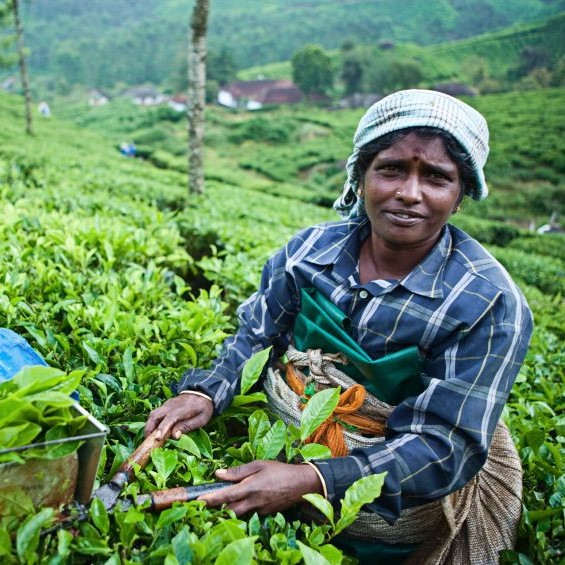Our research themes
CBLG focuses on three transversal research themes to generate knowledge that assists both private and public sectors deal with the challenges they face. Each theme draws on CBLG’s research expertise in its disciplinary areas, within and across these discipline areas.
The essence of our research revolves around producing knowledge about business and economic transformations, along with law reform, to empower private and public sector organisations in effectively confronting and navigating the challenges they encounter in the Tropics and beyond. In this way, transformation and reform serve as foundational pillars, forming a substantial part of CBLG's research.
Given the distinct and extensive scope of challenges related to each of the three transversal themes, we actively advance specialized knowledge to address these unique complexities. Moreover, our research transcends individual themes, embracing an interconnected approach that spans all three transversal themes. This fosters a comprehensive and holistic systems-approach, enabling us to tackle fundamental challenges in a unified manner.
Three themes:
Responsible & Sustainable Transformations
CBLG's Responsible & Sustainable Transformations research theme is dedicated to exploring ways for organisations and societies to operate sustainably and responsibly in the Tropics and beyond.
Private and public sector organisations, along with society in general, confront numerous complex sustainability issues. CBLG delves into psychological, professional and organisational practices that foster sustainable and responsible behaviour and decision-making, providing a foundation for addressing these challenges. Our research spans various areas, including but not limited to:
- Supporting the blue economy enabling the sustainable use of ocean resources for economic growth, improved livelihoods, and jobs while preserving the health of marine ecosystems.
- Shedding light on ethical concerns in business and law and advancing practices to effectively address them.
- Promoting understanding and practices for more sustainable and responsible production and use of materials.
- Advancing practices that concurrently support environmental protection, social justice, and economic and financial responsibility.
The ultimate objective of this research theme is to promote the well-being of both humanity and the environment for present and future generations. In pursuit of this objective, CBLG aims to create a tangible impact by supporting private and public sectors in achieving the United Nations' Sustainable Development Goals.
Theme Leader: Professor Peter Hofman

Example 1: Reflecting First Nations Peoples’ perspectives and cultural connections to Country within the UN System of Environmental Economic Accounting – Ecosystem Accounting (SEEA EA)
The Policy Problem:
The Australian Federal Government is keen to pilot Environmental Economic Accounting – Ecosystem Accounting based upon SEEA EA. However, there is no International or National guidance on how First Nations Peoples’ perspectives can be accounted for within Ecosystem Accounts.
The Solution:
The initial research, funded by the Federal Government Department of Climate Change, Energy, Environment and Water (DCCEEW), via the National Environmental Science Program (NESP) partnered with two First Nations groups to explore and make recommendations to DCCEEW on how best to reflect the perspectives of the First Nations Peoples within Ecosystem Accounts.
Jarvis D, Stoeckl N, Douglas M, Grainger D, Larson S, Finau G, Larson A , Ewamian Aboriginal Corporation, Barrowei R, Coleman B, Groves D, Hunter J, Lee M and Markham M (2022) Valuing Indigenous cultural connections. James Cook University, Cairns.
Example 2: Making Nature's Value Visible: Valuing the Contribution of Nature to Papua New Guinea's Economy and Livelihoods
The Policy Problem:
The absence of a comprehensive platform in Papua New Guinea (PNG) to measure the monetary values of ecosystem services, leading to hindered environmental planning, management decisions, and underinvestment in protected areas in PNG.
The Economic Solution:
The recommended solution involves increasing financial support for environmental protection to 1.8% of government budgetary expenditure, adopting a whole government approach for ecosystem services, and implementing natural capital accounting.
Chaiechi, T., Gabriel, J., Esparon, M., and Sievers, K. (2022) Making Nature's Value Visible: Valuing the Contribution of Nature to Papua New Guinea's Economy and Livelihoods. Report. United Nations Development Programme, Port Moresby, Papua New Guinea.
Technological & Digital Transformations
CBLG’s Technological & Digital Transformations research theme promotes exploring ways for organisations and societies in the Tropics and beyond to shape or embrace technological and digital advances.
Advanced technologies, digitisation, and other forms of tech-enabled changes are disrupting sectors, pressuring incumbent companies not only to scratch out stronger financial returns but also to remake who and what they are as organisations. CBLG is dedicated to developing solutions to foster technological and digital transformations in the areas of:
- Leveraging Big Data, Internet of Things, Industry 4.0 and blockchain.
- Benefiting from social media and augmented or virtual reality.
- Exploiting changing use habits, resource-saving potential for increasing efficiency, and automation.
- Advancing legal structures related to emerging technologies such as whether and how to delegate responsibilities to technologies and how to cope with new powers of manipulation.
Theme Leader: Dr Damian Wallace

Entrepreneurial & Innovative Transformations
CBLG’s Entrepreneurial & Innovative Transformations research theme identifies ways for organisations and societies in the Tropics and beyond to use entrepreneurial and innovative practices to create new economic, environmental and/or social value.
CBLG advances understanding and practices about how individuals and organisations create new value in existing organisations or through new ventures by exploring and shaping opportunities and by accepting social and financial uncertainties. Research topics include:
- Developing strategic management frameworks that enable organisations to better transform (e.g., through designing and implementing substantial changes that lead to better margins and potential new fit-for-purpose business models such as productivity and/or differentiation improvement covering product, service, and/or business model innovations).
- Developing frameworks to guide major resource/capital reallocations to support substantial shifts in organisations’ product and/or market portfolios.
- Producing legal advances to better deal with, for example, ensuing data protection, confidentiality, IP, liability, and compliance issues.
Theme Leader: Professor Siggi Gudergan

In collaboration with JCU's College of Science and Engineering, CBLG leads JCU's Transformational Change Hub that is a pan-university enabling capability to harness complex systems modelling and adaptive decision making to produce evidence-based, transformative solutions.